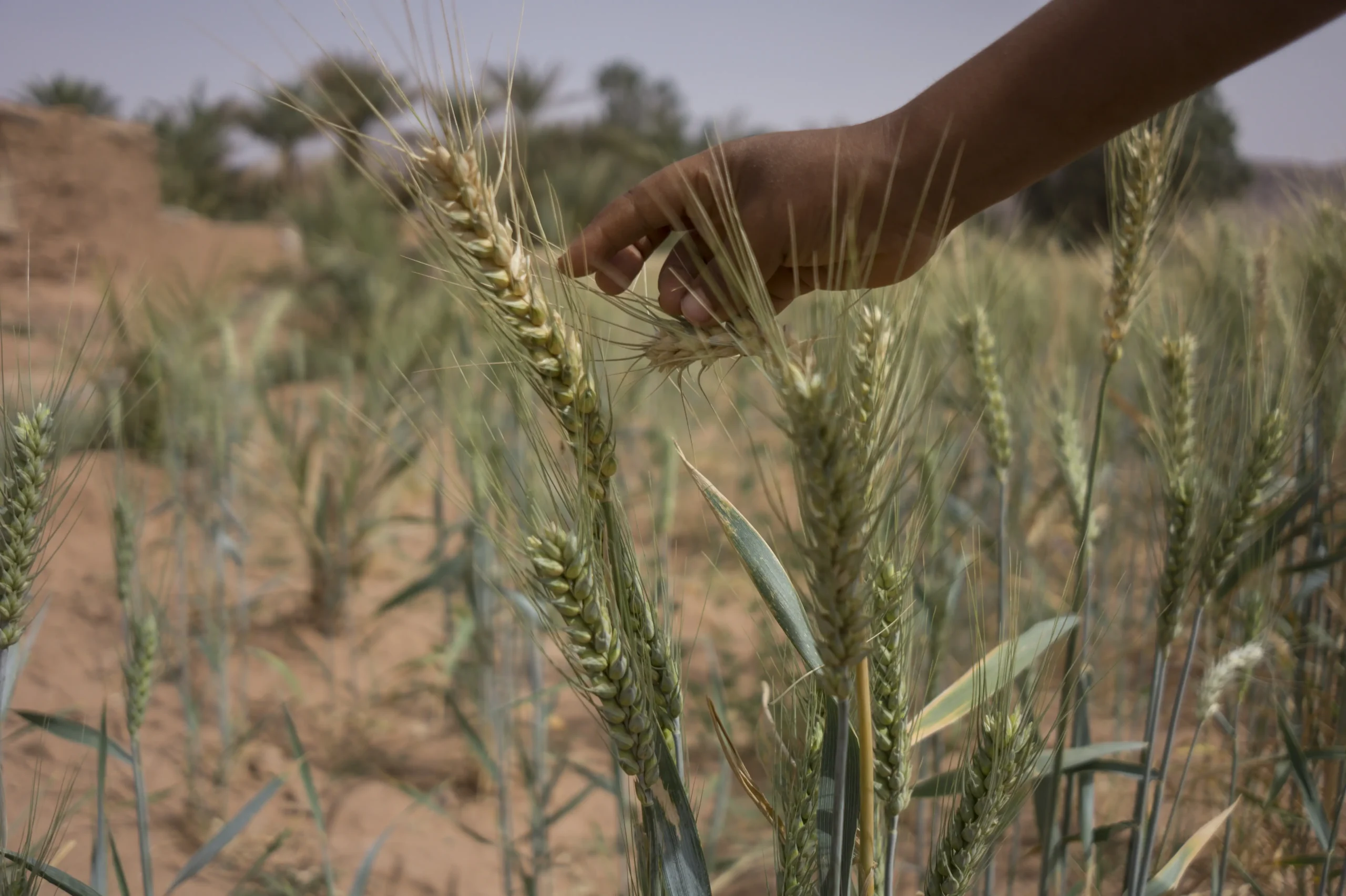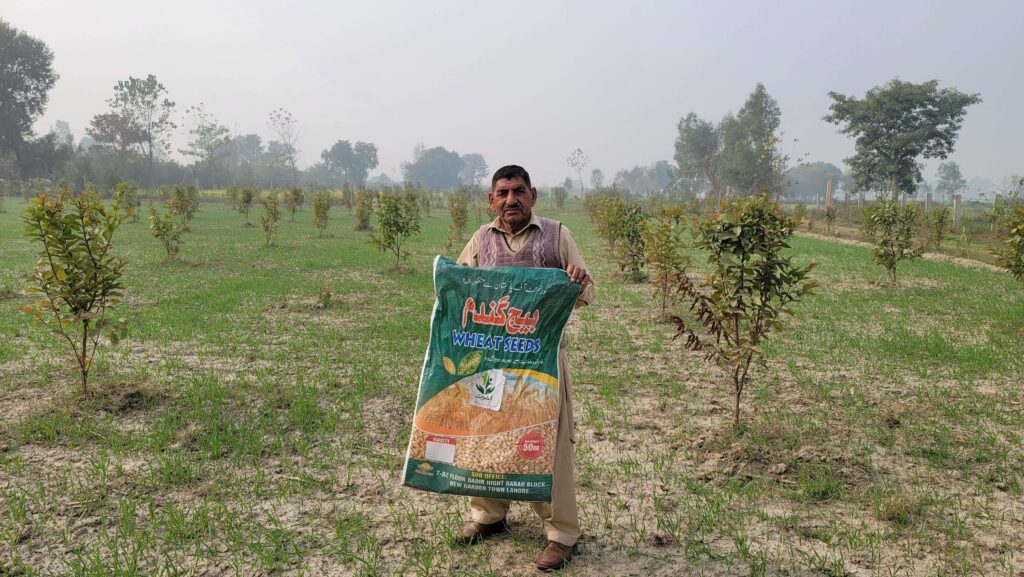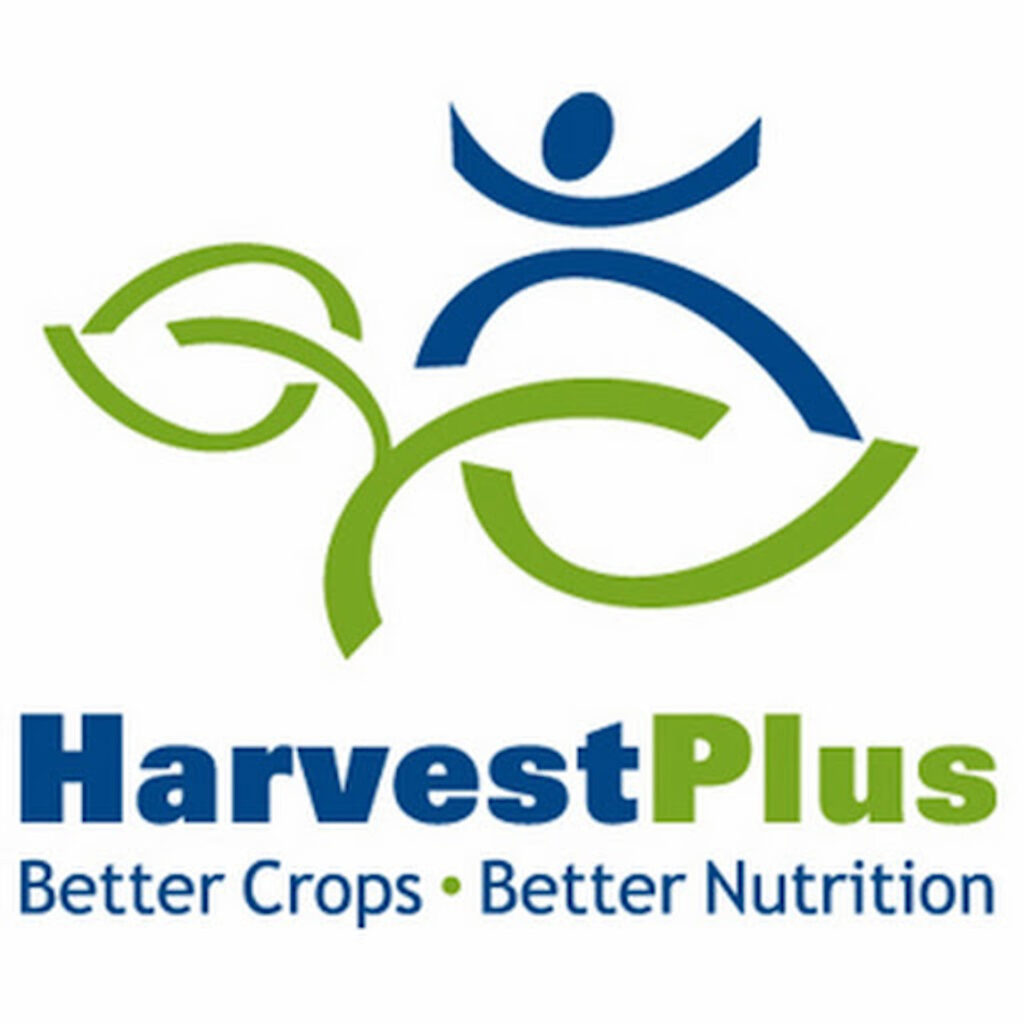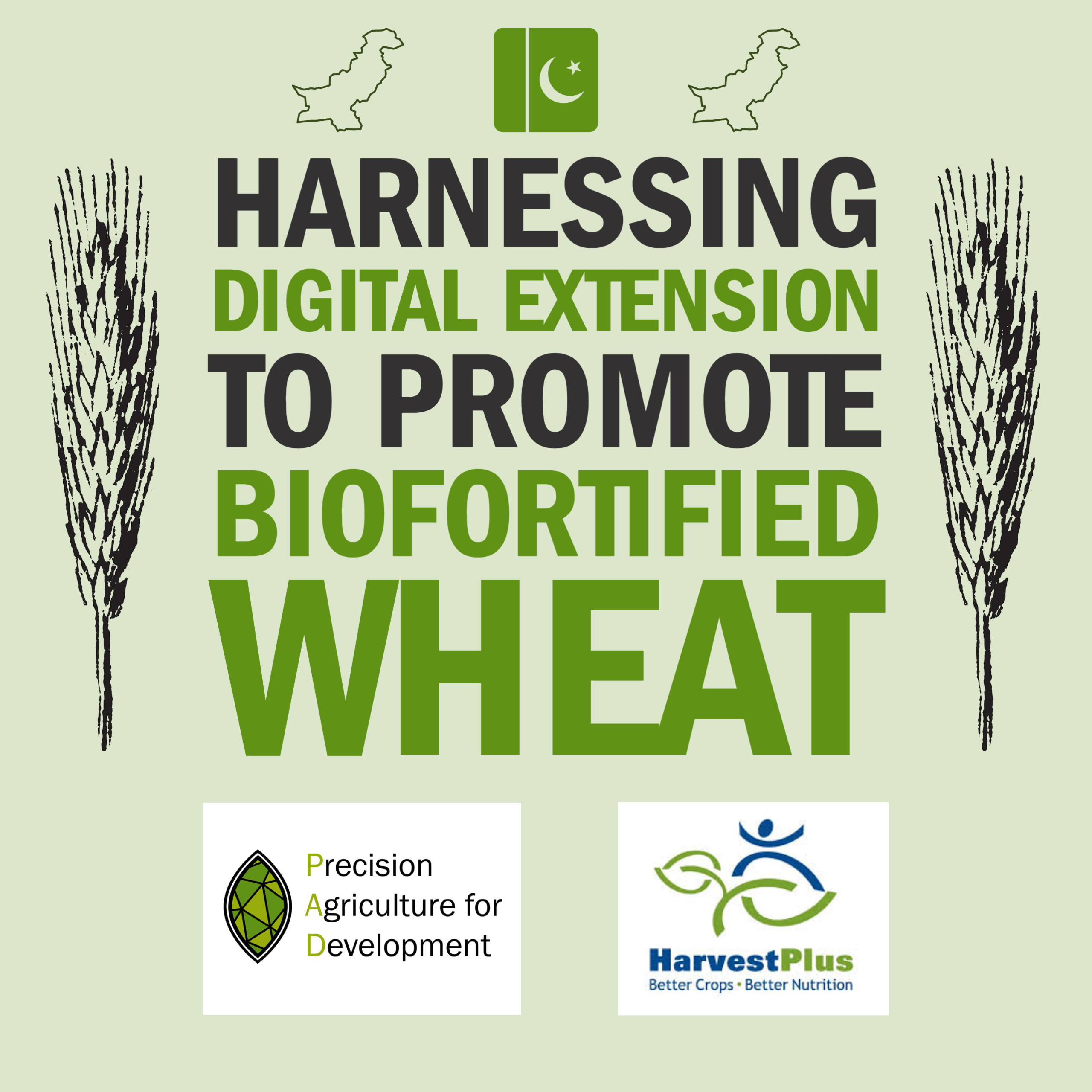HarvestPlus Pilot – scaling zinc wheat in Pakistan
In 2020 and 2021, PxD collaborated with HarvestPlus on a pilot to deliver advisory information promoting the benefits of zinc-biofortified wheat to Pakistani farmers. This was PxD’s first initiative with a focus on nutrition, and our first collaboration with HarvestPlus.

103,938
HarvestPlus; Department of Agriculture, Southern Punjab
July 1st 2020 to May 2021
Five districts of Punjab Province, Pakistan
Overview
Malnutrition is a longstanding challenge in Pakistan. During the 2020/2021 Rabi planting season, PxD partnered with HarvestPlus, a program of CGIAR, to promote zinc biofortified wheat seeds in five districts of Punjab Province, Pakistan.
The pilot focused on raising awareness about the nutritional, economic, and agronomic benefits of zinc-biofortified wheat seeds at the peak of the 2020 Rabi wheat planting season. The Rabi sowing season spanned October through December 2020. The corresponding wheat harvest is brought in from the field in April and May 2021. All advisory content transmitted to farmers was approved by the Government of Punjab’s Department of Agriculture Southern Punjab.
Zinc micronutrient consumption is critical for gene expression, cell division, the development of immunity, and reproduction. A zinc-deficient diet can weaken and undermine the development of immune systems, trigger physical stunting and inhibit cognitive functioning in children, and contributes to pregnancy complications. Among young children, zinc deficiency significantly increases the risk of severe outcomes associated with diarrhea, pneumonia, and malaria, including death. Rigorous prevalence studies are limited, however available information suggests widespread zinc deficiency among children in Pakistan and an alarming rate of zinc deficiency among pregnant women, which may contribute to Pakistan’s poor infant and maternal mortality rates.
Pakistan has among the most wheat-intensive diets in the world and the crop is critical for smallholder communities. An estimated 80 percent of farmers in Pakistan plant wheat on their farms, with a total cultivated area equivalent to 40 percent of the country’s arable land. Wheat flour contributes 72 percent of Pakistan’s daily caloric intake and per capita wheat consumption is approximately 124 kg per year. For poor, rural and wheat farming populations, these consumption patterns are likely to be even more intensive.
The Zincol-16 and Akbar-19 biofortified wheat varieties developed by HarvestPlus (the latter was developed in collaboration with the Ayub Agriculture Research Institute) for the Pakistan market respectively contain up to 30 and 26 percent more zinc than traditional wheat varieties. Smallholder farmers in Pakistan consume a majority of the wheat they harvest. It is estimated that if all the wheat planted in Pakistan was zinc wheat then the average consumption of zinc would be at least 8.2mg of zinc per day, equivalent to 80 percent of the recommended daily amount. Given consumption patterns, the adoption of zinc-biofortified seed by smallholder families would have positive implications for the health of smallholder families.

In addition to nutritional advantages, the biofortified seeds promoted by HarvestPlus have been developed to be more disease resistant and are associated with higher yields than traditional varieties. A particular concern in Pakistan is the effect of rust infestation on wheat crops. Both Zincol-16 and Akbar-19 demonstrate strong resistance to wheat rusts.
PxD partnered with HarvestPlus to send customized SMS and Push Calls to 103,000 smallholder and progressive farmers in five districts of Punjab in Pakistan between 14 November and 1 December 2020 with advisory content provided in local languages (Urdu and Saraiki). All advisory content was approved by the Government of Punjab’s Department of Agriculture Southern Punjab. Of the total sample, more than 99 percent worked farms of 25 acres or less, and 64 percent worked farms of less than 5 acres.
Approximately 1.3 million SMS and 967,668 robocalls were placed to farmers. Eight push call messages were sent to farmers with content focused on the benefits of zinc for nourishment, the development of immune system and immunity, and the relative resistance of Akbar-19 and Zincol-16 wheat varieties to rust and other wheat pests and diseases.
Push calls were designed to be no longer than thirty seconds in length. Across 103,938 farmers pickup rates averaged 53 percent and listening rates 76 percent (the average farmer who picked up the phone listened to 73 percent of the message duration). High pick-up rates and listening rates for Robocalls suggest strong interest on the part of farmers for information about the zinc-biofortified wheat seeds and this compares favorably with our more established services.
A survey of farmers who received digital advisory promoting the health and yield benefits of biofortified wheat seeds via the HarvestPlus / PxD pilot program suggests extremely high rates of adoption, and – among farmers surveyed – an overall increase of 566 percent in the use of biofortified wheat inputs. While this survey does not meet the standards of an impact evaluation (there is no control group) and we are unable to control for factors such as an increase in zinc wheat seed supply, we are extremely excited at the fruitfulness of our collaboration with HarvestPlus and the success of our advisory campaign.
Example audio
This audio plays the first of eight push calls placed to farmers promoting nutritional and agronomic advantages of planting zinc-biofortified wheat.
Translated from the original Urdu: Do you know that consuming less than the recommended amount of Zinc can lead to many health-related challenges for children? These include malnutrition, stunting, and poor eyesight. For further information, please call 03000341445.
From our blog


Make an Impact Today


